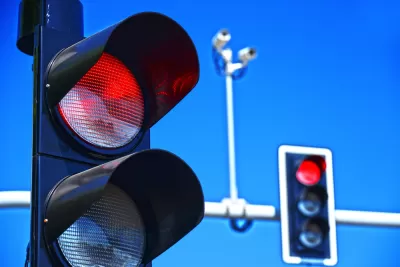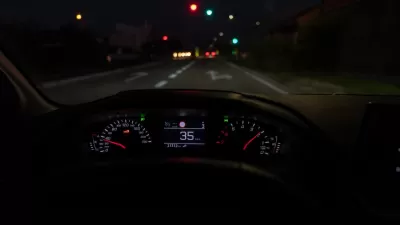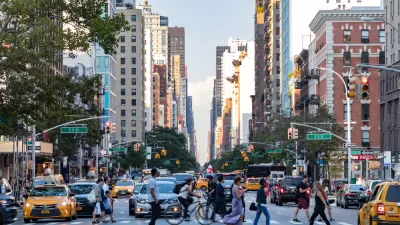Last year’s state ban ended a 13-year red-light enforcement program in Dallas. City officials say that intersections throughout the city are less safe without the cameras.

Dallas shut off its red-light cameras last year after Governor Greg Abbott signed a law banning them in the state.
"City transportation officials said that the red-light program made roads safer. They decreased T-bone collisions, which can lead to serious injuries or death because those tend to occur at faster speeds," write Hayat Norimine and Ariana Giorgi.
Crashes overall decreased at 19 of 29 intersections in the city where the cameras were installed, according to an analysis by the city’s Transportation Department.
In addition, the city will no longer have access to the funds collected from fines — almost $6 million in 2018 alone. Half of this funding went to traffic signal upgrades, and the ban will result in a loss of $2 million to $3.5 million annually, a substantial decrease that will hamper efforts to address infrastructure needs.
"The city has fallen behind on traffic signal maintenance. [Assistant City Manager Majed] Al-Ghafry said 60% of Dallas’ traffic signals are more than 20 years old, and the city will need up to $25 million over about two decades to systematically replace some of the oldest," report Norimine and Giorgi.
FULL STORY: Red-light traffic cameras reduced crashes, and now they’re gone. What’s next for Dallas?

Trump Administration Could Effectively End Housing Voucher Program
Federal officials are eyeing major cuts to the Section 8 program that helps millions of low-income households pay rent.

Planetizen Federal Action Tracker
A weekly monitor of how Trump’s orders and actions are impacting planners and planning in America.

Ken Jennings Launches Transit Web Series
The Jeopardy champ wants you to ride public transit.

California Invests Additional $5M in Electric School Buses
The state wants to electrify all of its school bus fleets by 2035.

Austin Launches $2M Homelessness Prevention Fund
A new grant program from the city’s Homeless Strategy Office will fund rental assistance and supportive services.

Alabama School Forestry Initiative Brings Trees to Schoolyards
Trees can improve physical and mental health for students and commnity members.
Urban Design for Planners 1: Software Tools
This six-course series explores essential urban design concepts using open source software and equips planners with the tools they need to participate fully in the urban design process.
Planning for Universal Design
Learn the tools for implementing Universal Design in planning regulations.
Ada County Highway District
Clanton & Associates, Inc.
Jessamine County Fiscal Court
Institute for Housing and Urban Development Studies (IHS)
City of Grandview
Harvard GSD Executive Education
Toledo-Lucas County Plan Commissions
Salt Lake City
NYU Wagner Graduate School of Public Service





























